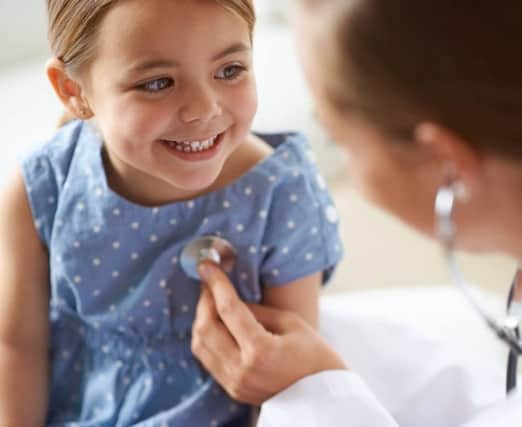Leeds doctor's virtual hospital tackling childhood illnesses


From waiting times at A&E to hospital trusts facing multi-million pound deficits and waiting times for GP appointments, the health service is facing greater and greater demands.
With people living longer, that demand is only set to grow.
That means the NHS is having to look at making major changes to the way it operates to ensure there are enough resources to meet these increasing pressures.
Advertisement
Hide AdAdvertisement
Hide AdAnd often those working within the service are best placed to see what measures could help.
It was this which led Dr Tim Ubhi, from Bramham near Leeds, to develop the Children’s e-Hospital.
A consultant paediatrician who has worked in St James’s Hospital in Leeds and Airedale Hospital near Keighley, he was seeing increasing numbers of young patients who didn’t necessarily need to be seen in hospital.
“You have a lot of patients being referred to hospital for very simple things,” he said.
Advertisement
Hide AdAdvertisement
Hide AdHe wanted to reduce that, using a new model of working and technology like Skype.
“You can make 80 per cent of diagnoses without having your hands on a patient.”
The aim of the Children’s e-Hospital is to bridge the gap between paediatric specialists and the public, improve care and support GPs when they are referring to hospital.
“A lot of these issues that they refer could be handled with a two to three minute video call or phone call,” Dr Ubhi explained.
Advertisement
Hide AdAdvertisement
Hide AdThe Children’s e-Hospital website provides information for parents about common childhood illnesses, with the aim of reducing the number of children who are taken to accident and emergency departments unnecessarily.
For GPs, they can offer an e-consultation service to provide advice on the management of stable conditions.
Dr Ubhi said childhood illnesses ranged from those needing treatment along specific pathways, to chronic conditions.
“It’s about knowing when the child needs help and when you need to give support on how they can be managed at home.”
Advertisement
Hide AdAdvertisement
Hide AdHe said the Government’s out of hours 111 telephone service – which has recently come in for further criticism – was a good idea but did not allow for thinking outside of the obvious.
“We are trying to address that,” he added.
Dr Ubhi and his team are now looking at using computer modelling which can predict outbreaks of illnesses among children, such as measles, before they take hold.
“It will alert that something’s wrong and if it continues to rise, you need to get ready for an outbreak,” he added.
Visit www.e-hospital.co.uk.